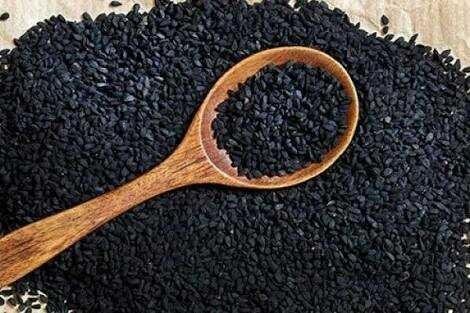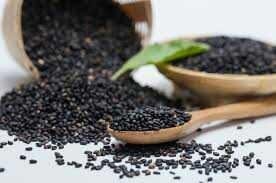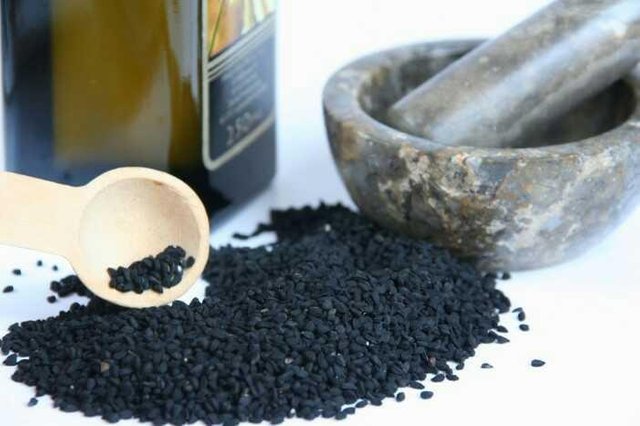Nigella sativa (black caraway)কালোজিরা
Nigella sativa (black caraway)কালোজিরা

Photo source
Nigella sativa (black caraway, also known as black cumin, nigella, and kalonji)[2][3][4] is an annual flowering plant in the family Ranunculaceae, native to south and southwest Asia.
N.sativa grows to 20–30 cm (7.9–11.8 in) tall, with finely divided, linear (but not thread-like) leaves. The flowers are delicate, and usually colored pale blue and white, with five to ten petals.
The fruit is a large and inflated capsule composed of three to seven united follicles, each containing numerous seeds which are used as spice, sometimes as a replacement for black cumin (Bunium bulbocastanum).
Etymology:

Photo source
The genus name Nigella is a diminutive of the Latin niger (black), referring to the seeds.
Common Names:
In English, N. sativa and its seed are variously called black caraway, black cumin, fennel flower, nigella, nutmeg flower, Roman coriander, and kalonji (from Hindi-Urdu).
Blackseed and black caraway may also refer to Bunium persicum.
History:

Photo source
Archaeological evidence about the earliest cultivation of N. sativa "is still scanty", but N. sativa seeds were found in several sites from ancient Egypt, including Tutankhamun's tomb. Seeds were found in a Hittite flask in Turkey from the second millennium BCE.
N. sativa may have been used as a condiment of the Old World to flavor food. The Persian physician, Avicenna, in his Canon of Medicine, described N. sativa as a treatment for dyspnea.
Chemistry:
N. sativa oil contains linoleic acid, oleic acid, palmitic acid, and trans-anethole, and other minor constituents.[6] Aromatics include thymoquinone, dihydrothymoquinone, p-cymene, carvacrol, α-thujene, thymol, α-pinene, β-pinene and t-anethole.
Research:
Preliminary studies have investigated claims from traditional medicine that N. sativa has efficacy as a therapy, mainly using the seed oil extract, volatile oil, and isolated constituent thymoquinone.[12] One meta-analysis of clinical trials found weak evidence that N. sativa has a short-term benefit on lowering systolic and diastolic blood pressure, and another found limited evidence that various extracts of black seed can reduce triglycerides and LDL and total cholesterol, while raising HDL cholesterol.
This looks delicious! My suggested beer pairing is a Porter. Try it out and let us know what you think!
thanks for the information about the black caraway
thank you so much.
Congratulations @grsalim! You have completed the following achievement on the Steem blockchain and have been rewarded with new badge(s) :
Click here to view your Board of Honor
If you no longer want to receive notifications, reply to this comment with the word
STOPDo not miss the last post from @steemitboard:
Congratulations @grsalim! You have completed the following achievement on the Steem blockchain and have been rewarded with new badge(s) :
Click here to view your Board of Honor
If you no longer want to receive notifications, reply to this comment with the word
STOPDo not miss the last post from @steemitboard:
Congratulations @grsalim! You received a personal award!
You can view your badges on your Steem Board and compare to others on the Steem Ranking
Vote for @Steemitboard as a witness to get one more award and increased upvotes!